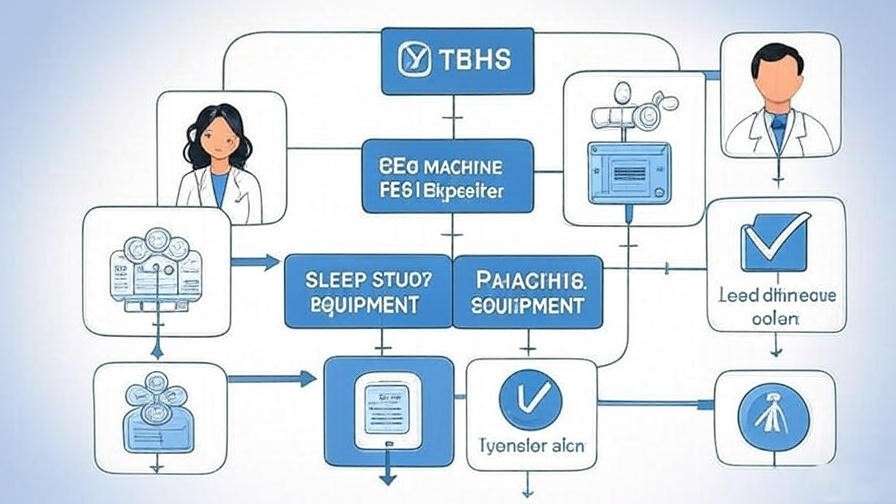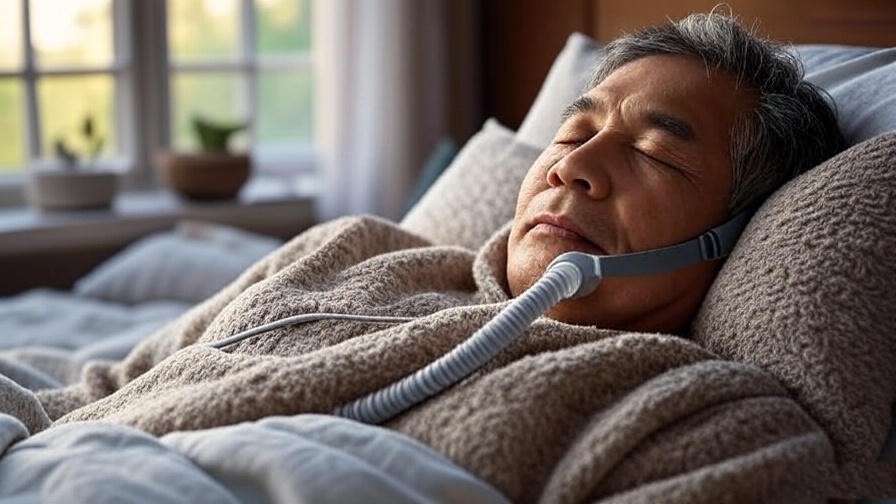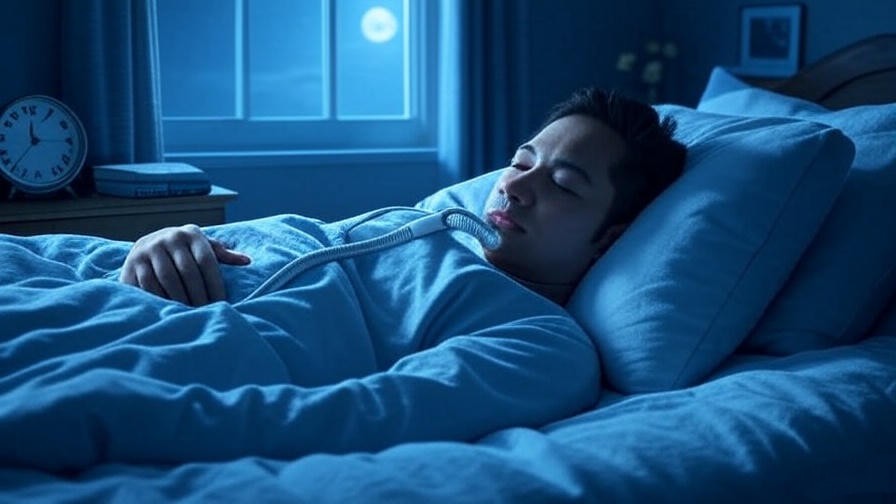Imagine waking up to a sharp sting on your tongue, the bitter taste of blood, or a nagging soreness that lingers all day. For many, the question why do I bite my tongue when I sleep is more than a fleeting curiosity—it’s a frustrating barrier to restful nights and vibrant days. Tongue biting during sleep can disrupt your peace, affect your oral health, and signal underlying issues that deserve attention. As a sleep and holistic well-being specialist, I’ve seen how this overlooked issue impacts countless individuals. In this comprehensive guide, we’ll uncover the causes of tongue biting—from stress to medical conditions—and share expert-backed solutions to help you reclaim restful, pain-free sleep. Whether you’re seeking clarity or actionable steps, this article will empower you to address this problem holistically.
Understanding Tongue Biting During Sleep
What Is Tongue Biting During Sleep?
Tongue biting during sleep is an involuntary action where you unintentionally bite or chew your tongue while asleep. This can range from mild discomfort to severe injuries, such as cuts or swelling. It’s often linked to disrupted sleep patterns, making it a concern for those prioritizing holistic well-being. Unlike daytime tongue biting (often due to distraction or chewing), nocturnal tongue biting occurs unconsciously, making it harder to control without targeted interventions. Understanding this issue is the first step toward addressing its root causes and improving your sleep quality.
How Common Is It?
Tongue biting during sleep is more common than you might think. Studies estimate that up to 30% of adults experience occasional bruxism (teeth grinding), a leading cause of tongue biting, while sleep apnea affects over 20 million Americans, with some cases involving tongue biting. These statistics, drawn from research by the American Academy of Sleep Medicine, highlight that you’re not alone. By addressing this issue openly, we reduce stigma and encourage proactive steps toward better sleep health, aligning with the principles of mindfulness and self-care.
Why Do I Bite My Tongue When I Sleep? Exploring the Causes
Bruxism (Teeth Grinding)
Bruxism, or teeth grinding, is a primary culprit behind tongue biting during sleep. This condition involves clenching or grinding your teeth, often unconsciously, which can trap or injure the tongue. Stress, anxiety, misaligned teeth, or even genetics can trigger bruxism. According to a 2020 study in the Journal of Oral Rehabilitation, approximately 1 in 3 adults experience bruxism, with many reporting associated tongue injuries. Addressing bruxism not only prevents tongue biting but also protects your dental health, a key component of overall well-being.
Sleep Apnea and Airway Obstruction
Obstructive sleep apnea (OSA) is another common cause. In OSA, the airway collapses or becomes blocked during sleep, leading to irregular breathing patterns. This can cause the tongue to move abnormally, increasing the risk of biting. The National Sleep Foundation notes that untreated sleep apnea affects sleep quality and increases risks for heart disease and fatigue. A sleep specialist can diagnose OSA through a polysomnography test, offering clarity on whether this condition contributes to your tongue biting.
Seizures and Neurological Conditions
In some cases, tongue biting signals a neurological issue, such as nocturnal seizures. These seizures, which occur during sleep, can cause involuntary muscle movements, including jaw clenching or tongue biting. A 2019 study in Epilepsy & Behavior found that tongue biting is a hallmark symptom in 20–30% of nocturnal seizure cases. While less common, this cause requires urgent attention. Consulting a neurologist can help distinguish benign tongue biting from serious conditions, ensuring timely intervention.
Stress, Anxiety, and Psychological Factors
Stress and anxiety don’t just weigh on your mind—they can manifest physically during sleep. Chronic stress can lead to muscle tension, including in the jaw, increasing the likelihood of tongue biting. As a holistic well-being advocate, I’ve seen how mindfulness practices can reduce these symptoms. Research from the Journal of Clinical Sleep Medicine (2021) links high stress levels to disrupted sleep patterns, including bruxism and related issues. Addressing emotional health is crucial for restful sleep and preventing physical symptoms like tongue biting.
Medications and Substance Use
Certain medications, such as antidepressants (e.g., SSRIs), or substances like alcohol and caffeine, can increase muscle activity or disrupt sleep, leading to tongue biting. A 2022 review in Pharmacology & Therapeutics noted that some medications alter jaw muscle control, contributing to bruxism. If you suspect your medication is a factor, consult your doctor before making changes. Reducing alcohol or caffeine intake, especially before bed, can also minimize risks.
Other Contributing Factors
Less common causes include jaw misalignment, dental issues (e.g., ill-fitting dentures), or sleeping in positions that press the tongue against the teeth. Rarely, genetic conditions affecting muscle control may play a role. A comprehensive dental exam can identify structural issues, while adjusting sleep posture may offer simple relief. Exploring these factors ensures a thorough approach to solving tongue biting.
Symptoms and Side Effects of Tongue Biting
Immediate Effects
Waking up with a bitten tongue can cause immediate pain, swelling, or small cuts. In severe cases, bleeding or bruising may occur, making eating, drinking, or speaking uncomfortable. These symptoms disrupt daily life and can heighten anxiety about sleep, creating a vicious cycle. Proper oral hygiene, such as rinsing with saltwater, can prevent infection and promote healing in the short term.
Long-Term Consequences
Repeated tongue biting can lead to chronic pain, scarring, or even infections if wounds are untreated. It may also damage teeth or dental work, as noted by the American Dental Association. Beyond physical effects, poor sleep quality from tongue biting can contribute to fatigue, mood swings, and reduced focus, impacting your holistic well-being. Addressing the root cause is essential to prevent these long-term issues.
Case Study: Sarah, a 34-year-old teacher, experienced frequent tongue biting that left her exhausted and anxious. After consulting a sleep specialist, she discovered bruxism linked to work stress. Using a custom mouthguard and practicing mindfulness, she reduced episodes by 80% within three months, improving her sleep and daily energy.
Diagnosis: When to See a Professional
Self-Assessment Tips
Start by tracking your symptoms. Ask yourself:
- How often do I bite my tongue?
- Is the biting accompanied by jaw pain, headaches, or disrupted sleep?
- Do I notice signs of teeth grinding (e.g., worn teeth)?
Keeping a sleep journal for 1–2 weeks can provide valuable data for professionals. Note any stress, medications, or lifestyle factors that may correlate with episodes.
Consulting a Specialist
If tongue biting persists or worsens, seek professional help. A dentist can assess for bruxism or dental issues, while a sleep specialist may recommend a sleep study to diagnose conditions like sleep apnea. For suspected neurological causes, a neurologist can perform tests like an EEG. Below is a quick guide to specialists:
| Specialist | Role |
|---|---|
| Dentist | Diagnoses bruxism, fits mouthguards |
| Sleep Specialist | Conducts sleep studies for apnea |
| Neurologist | Evaluates seizures or neurological issues |
Solutions and Prevention Strategies
Addressing Bruxism

A custom-fitted mouthguard, prescribed by a dentist, is one of the most effective ways to prevent tongue biting caused by bruxism. These devices protect the tongue and teeth by creating a barrier. Orthodontic treatments, like bite correction, may address underlying jaw misalignment. Expert Tip: Dr. Emily Chen, a dentist with 15 years of experience, recommends choosing a soft, custom-fit mouthguard for comfort and durability.
Managing Sleep Apnea
For sleep apnea, Continuous Positive Airway Pressure (CPAP) therapy is a gold standard. CPAP devices keep airways open, reducing tongue movement that leads to biting. Lifestyle changes, such as maintaining a healthy weight, avoiding alcohol, and sleeping on your side, can also help. A step-by-step guide to exploring sleep apnea treatment:
- Consult a sleep specialist.
- Undergo a sleep study (polysomnography).
- Trial CPAP therapy or alternative treatments.
- Monitor symptoms and adjust as needed.
Stress Reduction Techniques
Stress is a major trigger for tongue biting. Incorporate mindfulness and meditation into your routine to relax the mind and body. Try this simple bedtime meditation:
- Sit comfortably and close your eyes.
- Focus on slow, deep breaths for 5 minutes.
- Visualize a peaceful scene, letting tension melt away.
Additionally, practice sleep hygiene: - Maintain a consistent sleep schedule.
- Limit screen time 1 hour before bed.
- Create a calming bedroom environment.
Downloadable Resource: A bedtime relaxation checklist is available on our website to guide you.
Medical Interventions
For neurological causes like seizures, medications like anticonvulsants may be prescribed. Always work with a neurologist to ensure safe treatment. For medication-induced tongue biting, your doctor may adjust dosages or switch prescriptions. Never alter medications without professional guidance.
Home Remedies and Quick Fixes
Safe home remedies include:
- Saltwater Rinse: Mix 1 tsp salt in warm water to clean wounds and reduce inflammation.
- Tongue Exercises: Strengthen tongue muscles with gentle movements, like pressing the tongue to the roof of your mouth.
Avoid unproven treatments like herbal supplements without scientific backing. Focus on evidence-based care for lasting results.
Holistic Approaches to Prevent Tongue Biting
Integrating Mindfulness and Meditation
Mindfulness and meditation are powerful tools for reducing stress-related tongue biting and enhancing overall sleep quality. By calming the nervous system, these practices can minimize involuntary muscle movements during sleep, such as jaw clenching or tongue biting. A 2021 study in Frontiers in Psychology found that regular mindfulness practice improves sleep by reducing cortisol levels, a stress hormone linked to bruxism.

Sample Bedtime Meditation Script:
- Find a quiet space and sit or lie down comfortably.
- Close your eyes and take 10 slow, deep breaths, focusing on the air moving in and out.
- Visualize a serene lake, with each exhale sending ripples of calm across your body.
- Spend 5–10 minutes in this state, gently redirecting your mind if it wanders.
Practice this nightly to promote relaxation and reduce physical tension. Apps like Calm or Headspace can guide beginners, but even a simple routine can yield results. Integrating mindfulness into your daily life also aligns with holistic well-being, fostering mental clarity and emotional balance.
Diet and Lifestyle Adjustments
Your diet and lifestyle play a significant role in sleep health and can influence tongue biting. Foods rich in magnesium, such as leafy greens, nuts, and whole grains, promote muscle relaxation and may reduce bruxism. Conversely, avoid stimulants like caffeine or heavy meals close to bedtime, as they can disrupt sleep and increase muscle activity. A 2020 study in Nutrients highlighted magnesium’s role in improving sleep quality and reducing stress-related symptoms.
Sleep-Friendly Foods Table:
| Food | Benefit |
|---|---|
| Almonds | High in magnesium, promotes relaxation |
| Bananas | Contains potassium, supports muscle health |
| Chamomile Tea | Calms the nervous system |
| Whole Grains | Stabilizes blood sugar, aids sleep |
Lifestyle adjustments, like regular exercise (avoiding intense workouts before bed), can also reduce stress and improve sleep. Aim for 30 minutes of moderate activity, such as yoga or walking, most days of the week. These changes support holistic well-being by addressing both physical and emotional triggers of tongue biting.
Creating a Sleep-Conducive Environment

Your bedroom environment significantly impacts sleep quality. A calm, clutter-free space signals to your brain that it’s time to rest, reducing the likelihood of stress-related tongue biting. Consider these tips:
- Lighting: Use dim, warm lights or blackout curtains to promote melatonin production.
- Noise: Minimize disruptions with white noise machines or earplugs.
- Temperature: Keep the room cool, ideally between 60–67°F (15–19°C), as recommended by the National Sleep Foundation.
- Comfort: Invest in a supportive mattress and pillows to maintain proper spinal alignment, reducing jaw tension.
These adjustments create a sanctuary for restful sleep, aligning with the principles of holistic health by nurturing both body and mind.
When Tongue Biting Signals a Bigger Issue
Not all tongue biting is benign. Persistent or severe cases may indicate serious conditions requiring immediate attention. Red flags include:

- Frequent, painful biting that disrupts sleep or daily life.
- Accompanying symptoms like headaches, jaw pain, or daytime fatigue.
- Neurological signs, such as seizures, confusion, or muscle spasms.
The American Academy of Sleep Medicine emphasizes that recurrent tongue biting, especially with other neurological symptoms, warrants a thorough evaluation. A decision tree can help:
- Assess Frequency: Is tongue biting occasional or nightly?
- Check Symptoms: Are there signs of bruxism, apnea, or seizures?
- Seek Help: If symptoms persist beyond two weeks or worsen, consult a specialist.
Flowchart Example (to be visualized in the final article):
- Start: Tongue biting occurs.
- Step 1: Track symptoms for 1–2 weeks.
- Step 2: If mild and stress-related, try mindfulness and lifestyle changes.
- Step 3: If severe or neurological symptoms appear, see a dentist, sleep specialist, or neurologist.
This structured approach ensures readers address serious issues promptly while maintaining trust in evidence-based guidance.
FAQs
Q1: Is tongue biting during sleep dangerous?
A: Occasional tongue biting is usually harmless but can cause pain or minor injuries. Persistent or severe biting may signal underlying issues like bruxism or sleep apnea, requiring professional evaluation.
**Q2: Can stress alone cause to reduce stress and improve sleep quality.
Q3: How do I know if I need a mouthguard?
A: If you experience frequent tongue biting, jaw pain, or worn teeth, a dentist can assess for bruxism and recommend a custom mouthguard. Self-assessment, like checking for tooth wear, can also guide your decision.
Q4: Can children bite their tongues during sleep?
A: Yes, children can experience tongue biting, often due to bruxism or sleep apnea. Consult a pediatric dentist or sleep specialist for age-appropriate solutions.
Q5: What’s the link between tongue biting and sleep apnea?
A: Sleep apnea can cause the tongue to move abnormally due to airway obstruction, increasing biting risk. A sleep study can confirm if apnea is a factor.
Conclusion
Tongue biting during sleep is more than a minor annoyance—it’s a signal that your body may need attention. From bruxism and sleep apnea to stress and neurological conditions, the causes are varied but manageable with the right approach. By addressing underlying triggers through dental solutions, stress management, and holistic lifestyle changes, you can reclaim restful, pain-free nights. Start by tracking your symptoms, exploring mindfulness practices, or consulting a specialist if needed. Your sleep health is a cornerstone of holistic well-being, and tackling tongue biting is a step toward a happier, healthier you.













